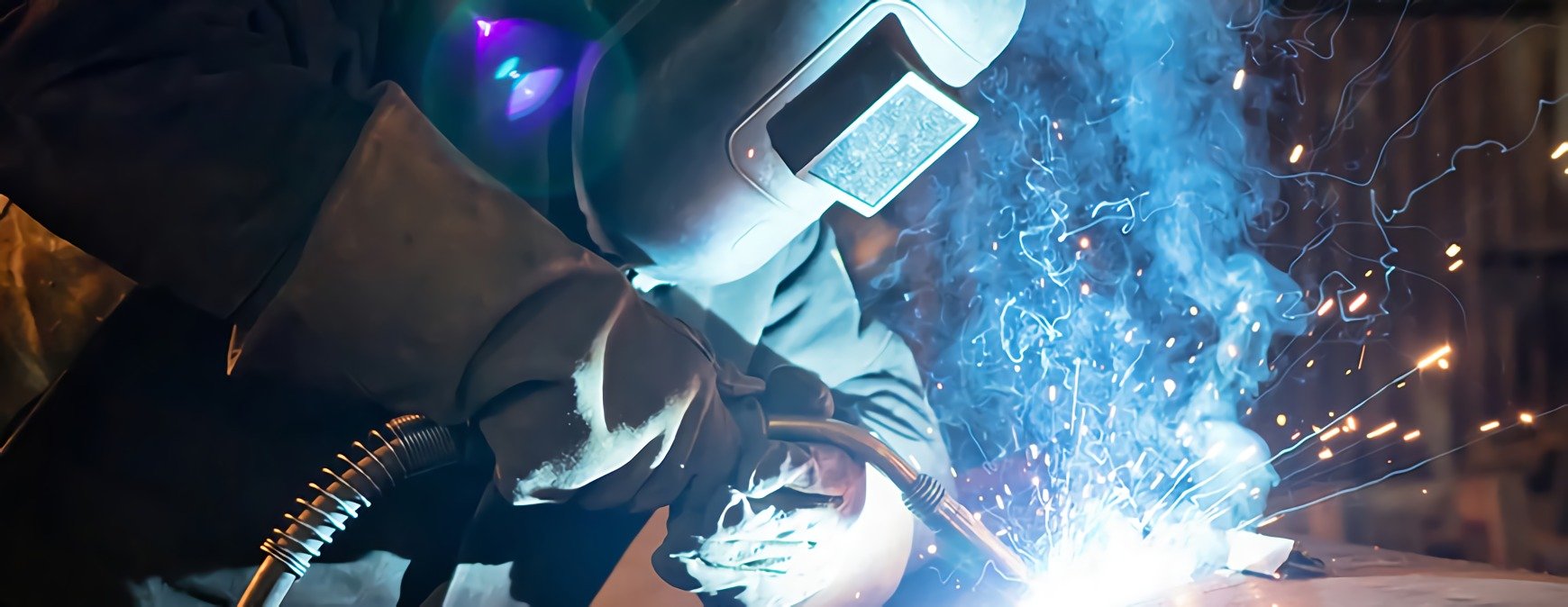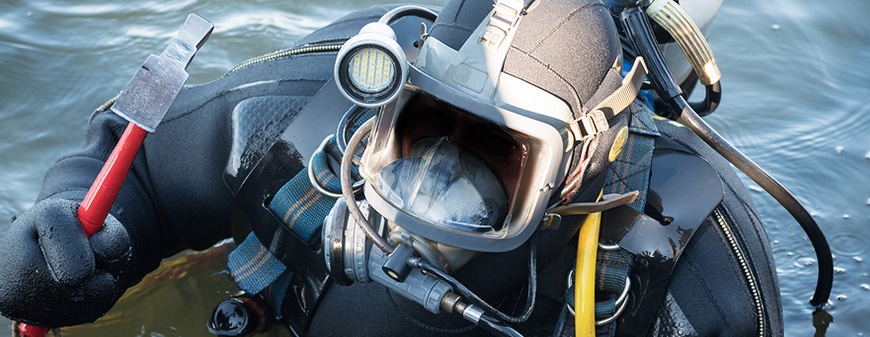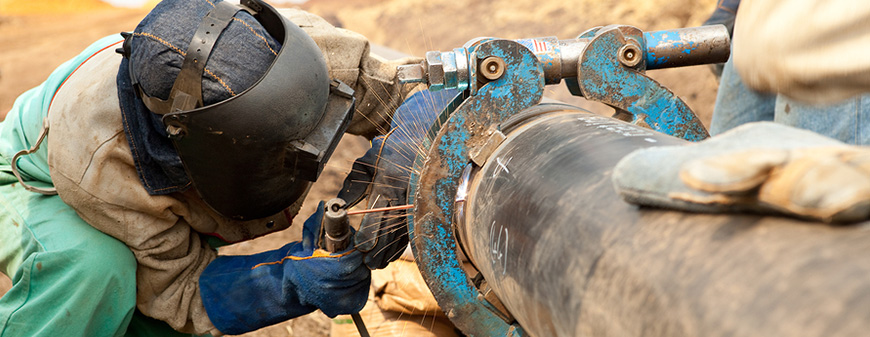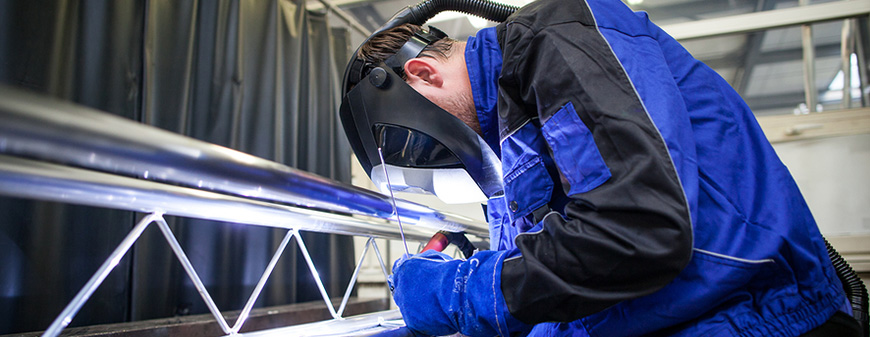
Do you like building and fixing things? Want to get paid for doing it?
Then you’ve made the right choice by enrolling in a welding training program, because that’s exactly what a career fusing metal could hold for you.
But did you know you could ply the trade in exotic countries, out on the open seas or even on the ocean floor? Welding offers plenty of opportunities to travel.
Traveling Welding Careers
If you’re interested in seeing the world while you weld, then one of these traveling jobs might be a good fit for you. As a welding school student, you’ll learn the core welding processes that are used in these fields.
But landing these jobs could require some additional, specialized training, too.
Get Started on the Path to a New Career
Fill out our form to learn how we can help you change your life.
NASCAR

Want to work in Las Vegas one weekend and Talladega the next?[1][2] You could travel the country and enjoy the thrill of each and every NASCAR race as a pit crew welder.
Each racecar requires 950 man hours of fabricating and welding. Every inch of these lightning-fast, featherlight vehicles is custom-made.[3][4]
Welding Processes
Take your gas tungsten arc welding (TIG) and gas metal arc welding (MIG) skills to the racetrack.[5]
Skills
NASCAR welders must be able to work as fast as the racecars they build without sacrificing attention to detail or quality. These cars have to be quick enough to finish first but strong and durable enough to withstand high-speed crashes.
Industries
Clock in at tracks across the nation for NASCAR or internationally for Formula One.[6]
Underwater Welder

Are you a natural swimmer? Curious about the unseen world under the sea? Then take the plunge and work as an underwater welder.
These tradesmen and women descend hundreds of feet into the ocean to locate, inspect and repair or build major infrastructure like:
- Pipelines
- Dams
- Bridges
- Oil rigs
- Military and commercial ships
- Nuclear power plants[7][8]
Welding Processes
Underwater welders use arc welding processes. There are two ways to weld underwater: wet or dry.
Shielded metal arc welding with a waterproof electrode and flux-cored arc welding are employed for the wet process.
With dry underwater welding, the workpiece is enclosed in a hyperbaric chamber filled with gas, and gas tungsten arc welding is used.[9]
Skills
You’ll need credentials in welding and commercial diving to work as an underwater welder. This means certification in the American Welding Society’s Underwater Welding Code (AWS D3.6M) and commercial diver certification.
Navigating the deeps seas will also require being in great shape. These professionals usually have to pass a yearly physical exam.[10]
Industries
Marine salvaging, construction and petroleum are some of the major industries that employ underwater welders.[11]
Pipeline Welder

When you think of infrastructure, highways, buildings and bridges probably come to mind first—and welders certainly work on these, too. But pipelines are equally essential, transporting the natural gas, water and oil that serve as a life force to society.
Since pipes are often in difficult-to-reach or awkward positions, this type of welding is considered among the most challenging. That’s why the welding pros who work on them are regarded as some of the most highly-skilled and sought-after workers in the industry.
Welding Processes
Pipeline welders use the core processes of shielded metal arc welding, gas tungsten arc welding and flux-cored arc welding.
Skills
Most companies look for applicants who can perform a 6G or 6GR weld test to pipe, but knowing 1G, 2G and 5G can be helpful, too. Pipelines often carry hazardous materials, so knowledge of welding safety practices is also important.
Industries
Pipeline welders work in the gas and oil, automotive, shipbuilding, construction, fabrication, nuclear energy and aerospace industries. The U.S. Armed Forces is yet another employer of these tradespeople.[12][13]
Industrial Shutdown Structural Welder

Energy plants power cities and towns, and factories produce essentials like cars, cell phones and computers. It’s the job of a structural welder to maintain, repair or even expand these industrial buildings.[14]
These pros travel from factory to factory to ply their trade during industrial shutdowns. Many spend six months on the road and the other six off.[15]
Welding Processes
Structural welders use shielded metal arc welding and flux-cored arc welding.[16]
Skills
Along with the welding processes listed above, structural welders must be able to erect, join, cut and repair, girders, columns, beams and other structural components.
The ability to follow Welding Procedure Specifications, blueprints and technical drawings is also necessary.
Industries
Just about every city and many rural areas have manufacturing and power plants, so structural welders can usually find industrial shutdown work in locales across the country.
They can also work in:
- Steel fabrication
- Oil and gas
- Equipment repair
- Aerospace
- Mining
- Nuclear industries[17]
Welding the World
Welding plays a big role in industries across the world. Learning the main processes taught in welding school can unlock opportunities in many of these fields thanks to their widespread applications.
Get a better idea about career opportunities in the U.S. in Where Are All the Welding Jobs? These States Have the Highest Employment.
Additional Sources
[1] https://www.nascar.com/tracks
[2] http://careersinwelding.com/individual_details.php?id=5
[3] https://awo.aws.org/2014/08/exciting-careers-in-welding/
[4] http://gowelding.org/articles/facts-about-career-welding/
[5] https://www.millerwelds.com/resources/article-library/welding-essentials-for-racing-a-visit-with-kevin-harvick-inc
[6] https://www.kemppi.com/en-US/news-events/news/kemppi-and-f1-driver-valtteri-bottas-sign-a-partnership-agreement/
[7] http://www.careersinwelding.com/salary_information.php
[8] http://awsweldlink.org/careers/detail/underwater-welder
[9] http://weldguru.com/underwater/
[10] https://app.aws.org/education/plunge.html?_ga=2.177607459.745619418.1534872231-1448564719.1534872231
[11] http://awsweldlink.org/careers/detail/underwater-welder
[12] https://awsweldlink.org/careers/detail/pipeline-welder
[13] http://gowelding.org/articles/facts-about-career-welding/
[14] http://awsweldlink.org/careers/detail/structural-welder
[15] http://gowelding.org/articles/facts-about-career-welding/
[16] http://www.fabricatingandmetalworking.com/2017/07/field-vs-shop-whats-the-best-welding-process-for-structural-steel-fabrication/
[17] http://awsweldlink.org/careers/detail/structural-welder
This blog has been labeled as archived as it may no longer contain the most up-to-date data. For a list of all current blog posts, please visit our blog homepage at https://www.rsi.edu/blog/

